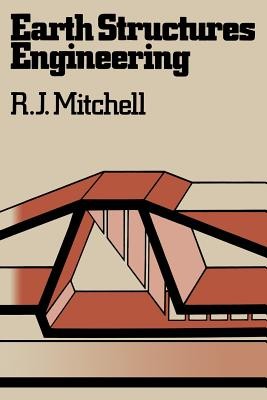
- Išsiųsime per 10–14 d.d.
- Autorius: R Mitchell
- Leidėjas: Springer
- ISBN-10: 0046240047
- ISBN-13: 9780046240042
- Formatas: 15.6 x 23.4 x 1.5 cm, minkšti viršeliai
- Kalba: Anglų
- Extra -15 % nuolaida šiai knygai su kodu: ENG15
Atsiliepimai
Aprašymas
Earth structures engineering involves the analysis, design and construction of structures, such as slopes and dams, that are composed mainly of earth materials, and this is a growth area in geotechnical engineering practice. This growth is due largely to increased involvement in designing various types of earth structures for the resources industries (slopes, impoundment structures, offshore islands, mine backfills), to the development of increas- ingly large hydroelectric projects, to the need for more freshwater storage and diversion schemes, and to the need for transportation, communications and other facilities in areas where the natural earth materials are occasionally subject to mass instabilities. Although geotechnical engineering transects traditional disciplinary boundaries of civil, geological and mining engineering, the majority of geotechnical engineers are graduates from civil engineering schools. Here the geotechnical instruction has been concentrated on soil mechanics and foundation engineering because foundation engineering has traditionally been the major component of geotechnical practice. Geotechnical special- ists, however, generally have acquired considerable formal or informal training beyond their first engineering degree, and an advanced degree with considerable cross-discipline course content is still considered an advantage for a young engineer entering a career in geotechnical engineering. Practical job experience is, of course, a necessary part of professional development but is readily interpreted and assimilated only if the required background training has been obtained.
EXTRA 15 % nuolaida su kodu: ENG15
Akcija baigiasi už 07:15:17
Nuolaidos kodas galioja perkant nuo 10 €. Nuolaidos nesumuojamos.

- Autorius: R Mitchell
- Leidėjas: Springer
- ISBN-10: 0046240047
- ISBN-13: 9780046240042
- Formatas: 15.6 x 23.4 x 1.5 cm, minkšti viršeliai
- Kalba: Anglų
Earth structures engineering involves the analysis, design and construction of structures, such as slopes and dams, that are composed mainly of earth materials, and this is a growth area in geotechnical engineering practice. This growth is due largely to increased involvement in designing various types of earth structures for the resources industries (slopes, impoundment structures, offshore islands, mine backfills), to the development of increas- ingly large hydroelectric projects, to the need for more freshwater storage and diversion schemes, and to the need for transportation, communications and other facilities in areas where the natural earth materials are occasionally subject to mass instabilities. Although geotechnical engineering transects traditional disciplinary boundaries of civil, geological and mining engineering, the majority of geotechnical engineers are graduates from civil engineering schools. Here the geotechnical instruction has been concentrated on soil mechanics and foundation engineering because foundation engineering has traditionally been the major component of geotechnical practice. Geotechnical special- ists, however, generally have acquired considerable formal or informal training beyond their first engineering degree, and an advanced degree with considerable cross-discipline course content is still considered an advantage for a young engineer entering a career in geotechnical engineering. Practical job experience is, of course, a necessary part of professional development but is readily interpreted and assimilated only if the required background training has been obtained.




Atsiliepimai